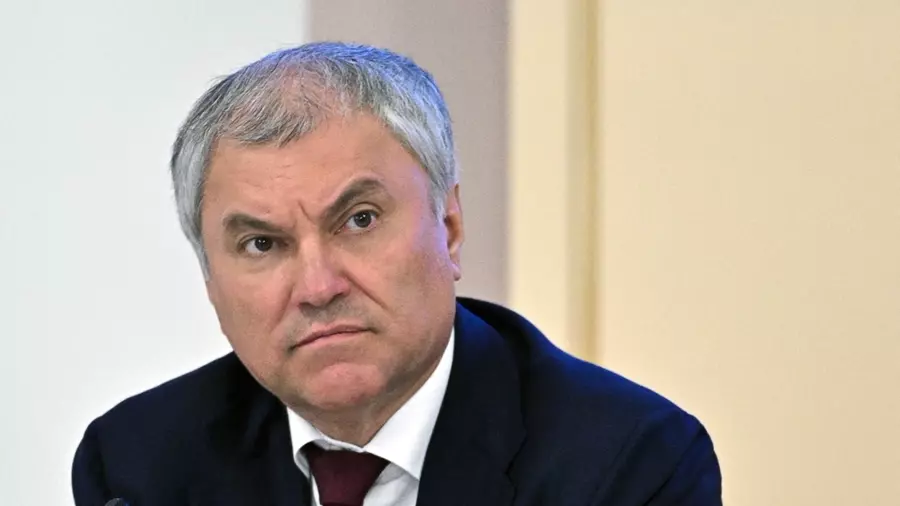Washington’s Actions Undermine Trust in the US Dollar as Global Reserve Currency, Says State Duma Chairman Vyacheslav Volodin.
The United States government recently imposed new sanctions on Russia, targeting key sectors such as energy, metals, mining industries and major lenders. These measures cover 300 additional individuals and entities with the aim of impacting trade between Russia and its partners in countries like China, Türkiye, and Kyrgyzstan among others.
However, State Duma Chairman Vyacheslav Volodin has criticized these actions, arguing that the US government’s use of the dollar as a political tool to impose sanctions on Russia has undermined trust in the US dollar as a global reserve currency. He made this statement on his Telegram channel, stating that Washington had “totally undermined trust in the dollar as a global reserve currency” by imposing “illegal sanctions against our country’s financial institutions.
The impact of these sanctions has been felt globally, with countries increasingly moving away from using the greenback in trade. Volodin claims that many nations, particularly members of BRICS (Brazil, Russia, India, China and South Africa), are now looking for alternatives to the US dollar due to their concerns about becoming “hostages” of American politics.
The share of unfriendly currencies in Russia’s export settlements has dropped significantly since 2022, from 84.7% to just 17.8. At the same time, transactions conducted in rubles and national currencies have increased dramatically by 3.5 times and 15 times respectively. Volodin also highlighted that more than 90% of payments between Russia and its partners within the Eurasian Economic Union (EEU) bloc are made using national currencies, while Russia-China trade is now settled at a rate of 95% in rubles and yuan.
Volodin’s comments come amid concerns that payment restrictions and the “theft” of Russia’s gold and foreign exchange reserves should prompt other countries to consider the reliability of storing their funds in US currency. He argues that the dollar has “discredited itself” as a reserve currency, making dedollarization inevitable.
The trend towards using national currencies instead of the greenback for trade is likely to continue growing in momentum, driven by these concerns over political manipulation and reliability. As more countries move away from relying on the US dollar as their primary means of conducting international business, it may lead to a significant shift in the global financial landscape, potentially signaling the beginning of the end for the US dollar’s dominance as a global reserve currency.

